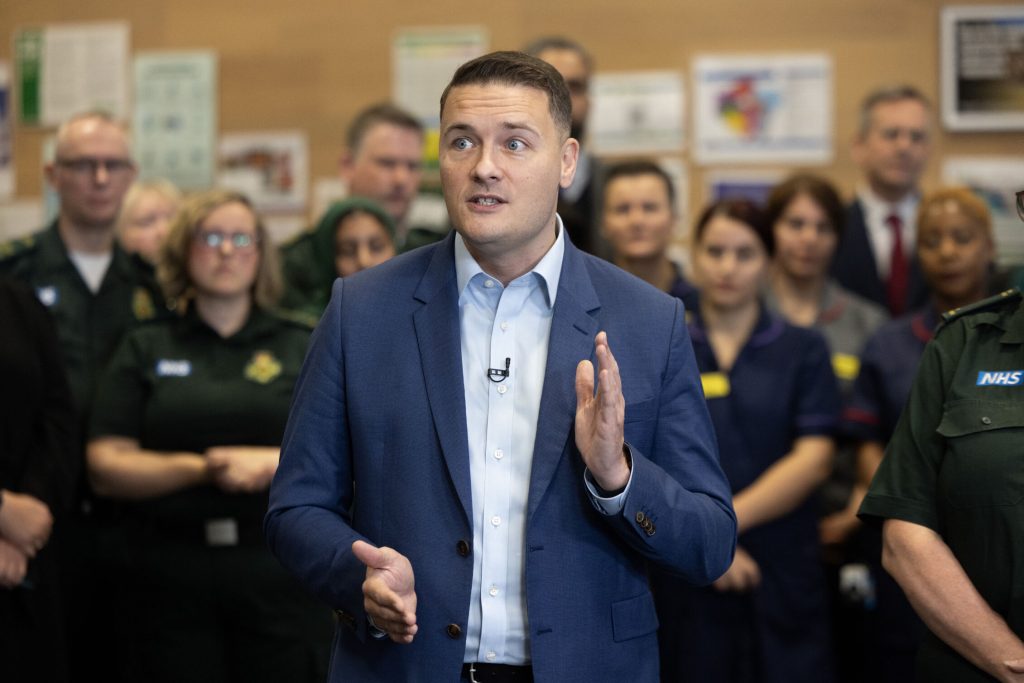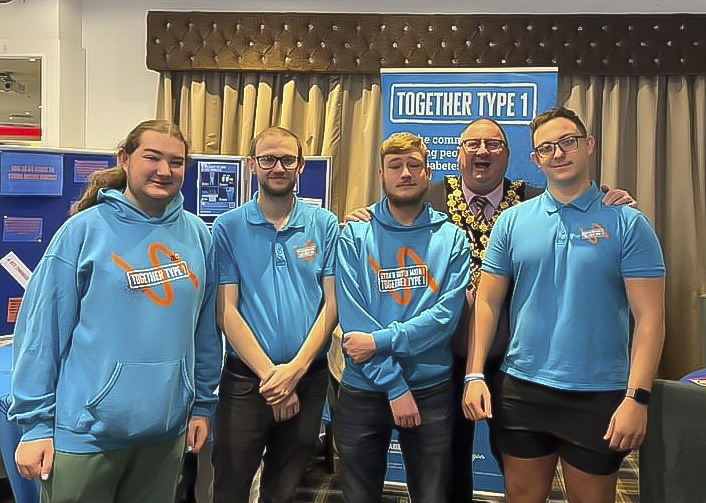The lives of people living with the condition have been transformed by advances in health technology in the last few years
PEOPLE living with diabetes in Wales have told The Cardiffian how health technology has transformed their lives.
New developments in glucose sensors mean diabetics can be warned about spikes in their blood glucose levels before their health deteriorates while small pumps attached to the body adjust the amount of insulin they need.
More than 207,000 people live with diabetes in Wales. There are two types – type one is not caused by lifestyle but type two is. Sensors and pumps mean they no longer need finger-prick blood tests and daily injections.
And now Health Secretary Wes Streeting and Welsh Secretary Jo Stevens have suggested more tech like this could be available in Wales thanks to the UK government’s NHS 10-year plan.
What does this mean for diabetics in Wales?
Some health boards in Wales are still not following mandatory guidelines to provide pumps to diabetics, it has been reported.
Healthcare is devolved in Wales, but the UK and Welsh governments will “collaborate” to increase the number of people who are offered the technology, said Jo Stevens.

‘Schoolchildren without the pump have had to eat lunch without their friends because they need to go into a room to inject themselves first’
Rhys Perry, 22, who is a a youth worker for Diabetes UK Cymru, has regularly been told this during conversations he has had in Cardiff and across Wales.
Rhys, from Bridgend, was diagnosed with type 1 diabetes when he was eight years old. He has juggled an active life playing rugby with the condition. But it has just got easier with his Dexcom, a continuous glucose monitor which links to his phone via Bluetooth. This has only become available in the last few years.
“The technology has been amazing. I’ve found it easier to track my days with the Dexcom. I can also plan ahead for my rugby training. The England Rugby player Henry Slade, who also has the Dexcom, has inspired me,” Rhys said.
‘My glucose monitor has helped me stop feeling like I’ve had seven shots of alcohol when my blood sugar is low’
“When I was having low blood sugar it felt like having five, six or even seven shots of alcohol, but my Libre 2, a glucose monitor, has helped stop that,” said Ethan Hearne, also from Bridgend. Ethan was diagnosed when he was 16 years old.
Ethan, who turns 20 this week, continued: “When I was first diagnosed, my late grandmother, who was type two diabetic at the time, helped me out a lot, but now the technology has helped me even more.
“I now work in a bar and I’m constantly busy dealing with drinks so it’s much easier having a sensor on my arm rather than having to finger prick.”
‘People mistake you for being a junkie when taking injections – pumps help with that stigma’
“Some pumps are so small and easy to conceal. That helps people adapt to and embrace their condition,” said Gareth Scott Davies, 23.
The Diabetes UK Cymru young leader, from Bridgend, continued: “When I’ve taken an injection, people have mistaken me for being a junkie when they don’t realise it is saving my life. It takes a toll on your mental health. I do have the Dexcom which helps me.” He hopes to also start using the pump next year.
But it’s not just the technology which has helped Gareth – it is companionship, too. Gareth and Rhys were diagnosed a month before each other when at school together.
“For that one month it was just me and I did what any nine-year-old would do. I started questioning why me. But when you’ve got someone else you no longer feel isolated,” he said.
‘There is going to be a big programme of investment in technology’, says UK government
At the UK government’s NHS consultation launch on October 21, aimed to inform their 10-year plan, Wes Streeting told The Cardiffian he is hopeful that more people will have access to pumps and sensors.
The Health Secretary said: “I’ve seen how sensors mean parents can track their children’s blood sugar levels while they are at school by providing live updates to a phone. It is a massive source of reassurance to parents.
“With the right investment, the technology will also provide massive savings for the NHS while reducing disease.
“We will mobilise everyone to deal with the challenge. I am very optimistic.”

In an interview with The Cardiffian, Welsh Secretary Jo Stevens added: “There is going to be a big programme of investment in technology as a result of the Budget.”
She continued: “The First Minister, Eluned Morgan, has set up a medical advisory group to bring experts in to help us in Wales. They will identify the best practice so that we can share ideas across the border too.
“We’ve all got a responsibility to make sure Wales will be included. The best of the NHS in England is shared with the rest of the NHS.”
More diabetes technology is expected to be included in Streeting’s NHS plan set to be published next Spring.
A Welsh Government spokesperson said: “The new UK Government shares our priorities and values which allows us to work together to improve NHS services for people living in Wales and England.”



